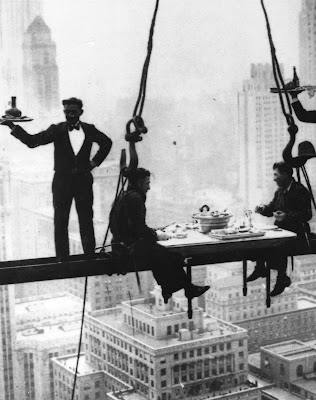A government that pays social blackmail will precipitate the very consequences that it fears
by Henry Hazlitt
Any attempt to equalize wealth or income by forced redistribution must only
tend to destroy wealth and income. Historically the best the would-be
equalizers have ever succeeded in doing is to equalize downward. This has even
been caustically described as their intention. “Your levellers,” said Samuel
Johnson in the mid-eighteenth century, “wish to level down as far as themselves; but they cannot bear
levelling up to themselves.”
And in our own day we find even an eminent liberal like the late Mr.
Justice Holmes writing: “I have no respect for the passion for equality, which
seems to me merely idealizing envy.”[1]
At least a handful of writers have begun to recognize explicitly the
all-pervasive role played by envy or the fear of envy in life and in
contemporary political thought. In 1966, Helmut Schoeck, professor of sociology
at the University of Mainz, devoted a scholarly and penetrating book to the
subject, to which most future discussion is likely to be indebted.[2]
There can be little doubt that many egalitarians are motivated at least
partly by envy, while still others are motivated, not so much by any envy of
their own, as by the fear of it in others, and the wish to appease or satisfy
it. But the latter effort is bound to be futile. Almost no one is completely
satisfied with his status in relation to his fellows.
In the envious the thirst for social advancement is insatiable. As soon as
they have risen one rung in the social or economic ladder, their eyes are fixed
upon the next. They envy those who are higher up, no matter by how little. In
fact, they are more likely to envy their immediate friends or neighbors, who
are just a little bit better off, than celebrities or millionaires who are
incomparably better off. The position of the latter seems unattainable, but of
the neighbor who has just a minimal advantage they are tempted to think: “I
might almost be in his place.”
Moreover, the envious are more likely to be mollified by seeing others
deprived of some advantage than by gaining it for themselves. It is not what
they lack that chiefly troubles them, but what others have. The envious are not
satisfied with equality; they secretly yearn for superiority and revenge. In
the French Revolution of 1848, a woman coal-heaver is said to have remarked to
a richly dressed lady: “Yes, madam, everything’s going to be equal now; I shall
go in silks and you’ll carry coal.”
Envy is implacable. Concessions merely whet its appetite for more
concessions. As Schoeck writes: “Man's envy is at its most intense where all
are almost equal; his calls for redistribution are loudest when there is
virtually nothing to redistribute.”[3]
(We should, of course, always distinguish that merely negative envy which
begrudges others their advantage from the positive ambition that leads men to
active emulation, competition, and creative effort of their own.)
But the accusation of envy, or even of the fear of others’ envy, as the
dominant motive for any redistribution proposal is a serious one to make and a
difficult if not impossible one to prove. Moreover, the motives for making a
proposal, even if ascertainable, are irrelevant to its inherent merits.
We can, nonetheless, apply certain objective tests. Sometimes the motive of
appeasing other people's envy is openly avowed. Socialists will often talk as
if some form of superbly equalized destitution were preferable to
“maldistributed” plenty. A national income that is rapidly growing in absolute
terms for practically everyone will be deplored because it is making the rich
richer. An implied and sometimes avowed principle of the British Labour Party
leaders after World War II was that “Nobody should have what everybody can't
have.”















